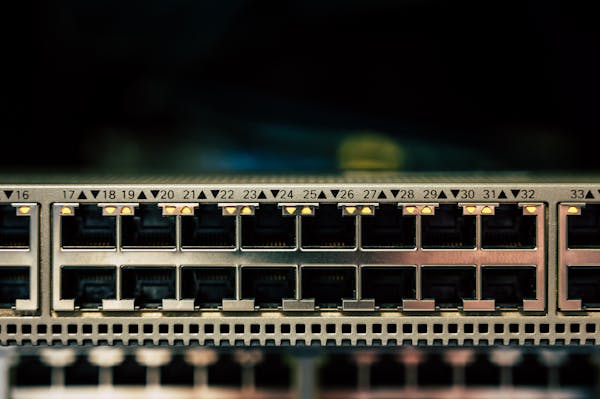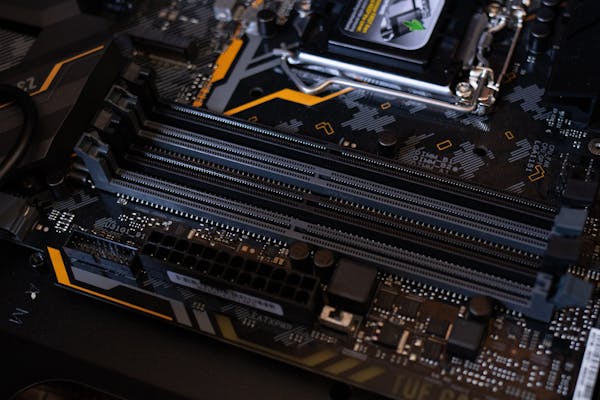
Exploring 4G Rotating Proxies
In today’s digital landscape, 4G rotating proxies have become essential for secure and anonymous browsing.
Defining 4G Rotating Proxies
These proxies utilize cellular data connections to rotate IP addresses to users. Unlike static proxies, they change IP addresses periodically, improving security.
Source article: rebrand.ly
Operational Dynamics
Upon activation, a dynamic IP from a mobile network is provided. These IPs are switched periodically, preventing consistent monitoring.
Why Opt for 4G Rotating Proxies
- Increased Security: Dynamic IP rotation masks real IP addresses.
- Bypassing Geo-Restrictions: Changing IPs facilitate unrestricted browsing.
- Lowered Detection Rates: Frequent IP changes prevent bans.
Applications of 4G Rotating Proxies
- Data Extraction: Rotating IPs ensure continuous data collection.proxies support multiple profiles.
- Ad Verification: Changing IPs validate ad placements.
- o Consider}
Before selecting a provider, consider:
- IP Pool Size: A larger pool enhances anonymity.
- Rotation Frequency: Determine if the service has fixed durations.
- Geographical Coverage: Access to multiple regions broadens usability.
Limitations to Be Aware Of
- Cost Implications: 4G proxies can impact budgets compared to other types.
- Connection Stability: Mobile networks may affect consistency.
- Ethical and Legal Considerations: Ensure usage respects terms of service.
Final Thoughts
Mobile 4G proxies enhance online privacy, positioning them as essential tools in today’s digital age.
Exploring the Inner Workings of Mobile 4G Proxies
Amidst the landscape of digital security, 4G rotating proxies have emerged as pivotal tools for maintaining user anonymity.
Defining 4G Rotating Proxies
4G rotating proxies leverage mobile networks to assign dynamic IP addresses to users. Unlike static proxies, they change IP addresses periodically, enhancing anonymity.
Operational Dynamics
Once initiated, users receive a 4G network IP. These IPs change after specific durations or actions, preventing consistent monitoring.
Advantages of 4G Rotating Proxies
- Enhanced Anonymity: Dynamic IP rotation masks real IP addresses.
- Overcoming Location Barriers: Changing IPs allow access to restricted content.
- Reduced IP Bans: Frequent IP changes avoid detection systems.
Use Cases for Mobile Proxies
- Information Gathering: Rotating IPs prevent scraping blocks.
- Automated Posting: Dynamic proxies support multiple profiles.
- Competitor Analysis: Changing IPs validate ad placements.
Choosing the Right Proxy Service
Before selecting a provider, consider:
- Diversity of IP Addresses: A larger pool offers better rotation.
- Switching Mechanisms: Determine if the service rotates per request.
- Location Options: Access to multiple regions aids in geo-testing.
Potential Challenges
- Cost Implications: 4G proxies may be pricier compared to other types.
- Network Reliability: Mobile networks might experience fluctuations.
- Ethical and Legal Considerations: Ensure usage avoids illicit activities.
Summing Up
Mobile 4G proxies enhance online privacy, establishing their importance in contemporary online activities.
In the modern digital age, remaining private and bypassing restrictions has become more critical than ever. Businesses, marketers, and developers often utilize proxy technologies to simulate different locations. Among these, 4G LTE rotating proxy servers have become a top-tier option.
What makes them better or worse than other alternatives like static proxies? Let’s explore the differences.
== What is a 4G Rotating Proxy?
A LTE rotating IP proxy is a proxy that uses real SIM cards connected to mobile networks. These proxies change IPs at custom timeframes or upon request, mimicking human behavior and eliminating the risk of bans or blocks.
== Main Proxy Types
Let’s summarize the key proxy types before comparing:
1. **Datacenter Proxies**
– Fast and affordable, but easily flagged.
2. **Residential Proxies**
– Use IPs assigned to real homes. More reliable, but slower and costlier.
3. **4G Mobile Proxies**
– Use real SIMs on LTE networks. Ideal for automation and stealth.
4. **SOCKS5 Proxies**
– Protocol-based, flexible, used for various apps, not just HTTP.
== Comparison Table
| Feature | 4G Rotating Proxies | Datacenter Proxies | Residential Proxies | SOCKS5 Proxies |
|————————|———————|———————|———————|—————-|
| IP Source | Mobile Network (SIM)| Data Centers | Home IPs | Varies |
| Rotation | Yes (Frequent) | Sometimes | Optional | Manual |
| Ban Resistance | High | Low | Medium | Depends |
| Speed | Medium | High | Low-Medium | High |
| Price | High | Low | Medium | Low-Medium |
| Target Use | Social, Ads, Bots | General Scraping | E-commerce, Research| General |
| Block Detection | Low | High | Medium | Medium |
== Technical Advantages of 4G Rotating Proxies
What gives mobile proxies their edge?
– **Real Device Trust**: Websites trust mobile IPs more than others due to carrier NAT and wide user pools.
– **Shared Reputation**: IPs are shared across many users, making banning a single user risky.
– **Geo-targeted Mobile Carriers**: Rotate between networks in real U.S. cities or countries.
– **Dynamic Rotation**: Can rotate every few minutes or after each request.
– **Bypasses Captchas**: Mobile IPs are less likely to trigger captchas or challenge verifications.
== Where 4G Proxies Win
Let’s cut to the chase— if you’re scraping Google or LinkedIn, nothing works better than a solid 4G proxy.
– Instagram and TikTok trust mobile IPs.
– Web scraping? You’ll trigger fewer blocks.
– Ads management across banned zones? Done.
== Where They Fall Short
– **Cost**: They’re way more expensive.
– **Speed**: Slower than static datacenter options.
– **Limited Threads**: Some providers limit concurrent usage.
== SOCKS5 vs 4G: Protocol vs Behavior
If you need raw protocol-level control, SOCKS5 is your friend. But they don’t rotate IPs on their own.

| Attribute | 4G Proxy | SOCKS5 Proxy |
|———————|——————–|——————–|
| Protocol Type | HTTP/HTTPS | SOCKS5 (All apps) |
| Rotation | Yes | Manual |
| IP Trust Level | Very High | Medium |
| Use Cases | Social, Ads, Bots | Torrenting, Apps |
== Use Cases Side-by-Side
**4G Rotating Proxies:**
– Social Media Management
– Mobile Ad Verification
– SEO Scraping
– Sneaker Bots / E-com Testing
– Marketplace Automation
**Datacenter Proxies:**
– High-volume scraping (non-sensitive)
– Speed-demanding tasks
– Price-conscious campaigns
**Residential Proxies:**
– E-com price intelligence
– Research tools
– CAPTCHA-heavy targets
**SOCKS5 Proxies:**
– Application-level traffic routing
– Anonymity over torrents
– Bypassing firewalls
== How to Choose the Right One?
Each proxy has a time and place. Here’s how to choose:
– Need speed? Go datacenter.
– Need trust and stealth? Go 4G mobile.
– Need app-level routing? Go SOCKS5.
– Need wide IP pools without rotation? Try residential.
== Future of 4G Rotating Proxies
With AI detection systems growing smarter, only mobile proxies are keeping up. We’re seeing:
– 5G proxy rollouts in testing
– Smarter rotation algorithms
– Integration with automation platforms like Jarvee, NextPost, Puppeteer
== Final Verdict
If you’re serious about anonymity, 4G rotating proxies are your best bet. For any campaign that’s stealth-heavy or bot-powered, it’s worth the investment.
== Spintax Conclusion
If you’re testing products or scraping competitors, investing in the right proxy is a make-or-break decision.
4G rotating proxies may cost more, but the results speak for themselves.
https://www.fortinet.com/resources/cyberglossary/proxy-server
https://en.wikipedia.org/wiki/Proxy_server
https://surfshark.com/blog/proxy-server
